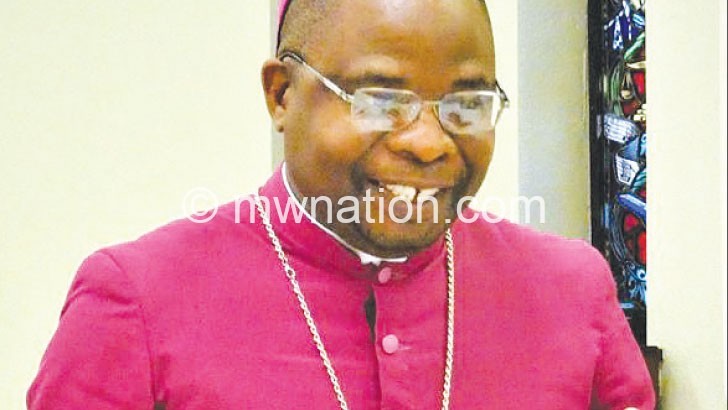Religious extremism catalyst for violence

problems and (inset) is Sheikh Malunga
The sprouting of religious groups almost on daily basis should have brought hope for an end to violence and chaos.
The assumption is that believers are called to propagate the Kingdom of God on earth; the kingdom where people can live together peacefully and freely without engaging in battles.
However, religion appears to be digressing from its core mandate with some believers taking leading roles in perpetrating extreme violent acts in the name of beliefs – whether it be Christianity, Islam, Judaism, Hinduism or any other faith.
It is a proven fact that many of the most dangerous terrorists in recent decades have cited religious justifications for their activities, often including chapters and verses.
Thus, they gladly cause deaths to innocent people in the name of protecting the values and principles of their religions.
Harvard University-educated political psychologist, Dr Neil J Kressel noted in one of his papers that a complex series of psychological, political, historical and theological factors combine to trigger such behavior.
Kressel singled out Muslim countries, which have experienced so much extremism in recent years because rules prohibit criticism of Islam.
He said some Muslim countries permit and even sponsor extremist education, socialization and most Muslim countries lack adequate constitutional protections for religious diversity.
“The longstanding religion-based governance in Iran and Saudi Arabia has, in the eyes of many Muslims and non-Muslims, been associated with diminished human rights in those countries. It is disturbing that the most virulent expressions of anti-Semitism have come so often from those functioning as clerics in the Muslim world,” he explained.
Malawi is among the fortunate African countries, which have not experienced devastating forms of extremism compared to Egypt and Nigeria.
Lilongwe-based religious commentator, Immanuel Mahmoudissa Salahadin, wondered why Malawians should be agonising over the topic when the country is generally a peace-loving nation.
“Extremism cannot be avoided and will always be there as long as human beings live. But is there a danger of it in Malawi?” asked Salahadin.
It is important to recall that the country experienced a replica of western extremism recently when enraged Muslims confiscated pork from an enterprising businessperson because ‘Mangochi is an Islamic state’ where sale of haram foods is strictly forbidden.
This is despite the fact that the council has not designated a market for pork or any haram sellers.
Writing on her blog, a psychology lecturer at a UK based University Roya Rad, defines a religious extremist as a self righteous person gone too far but that the practice is not restricted to one religion.
Rad cited a certain born-again Christian who killed an abortion doctor as a very outstanding example of Christian extremists.
Recently, Christians in Central African Republic (CAR) organised militias, which they maintained are self-defense forces aimed at expelling Seleka goons from their villages or neighborhoods.
In the fighting, some 440,000 innocent people were displaced.
Rad disclosed that the world’s lack of a moderate, moral and fair role model, in addition to a lack of access to proper education in many places, lack of basic resources for many people, too much repression, autocratic rulers, closed minded and egocentric leaders, personality factors, family upbringing, a tarnished sense of pride, are among reasons people turn into extremists.
“They have a sense of absolutism: They have a distorted, non-constructive and irrational thought that the truth, moral or aesthetic values are absolute, universal, set and unchangeable. They do not believe in change, diversity and are usually very low in their tolerance level.
“They have a sense of righteousness. They usually think that they know the truth and no one else does. Their truth is very limited and based on outdated, contaminated and one-sided information. They usually do not even have enough knowledge about their own religion and only know the surface part,” she explained.
Rad, however, emphasized that religious extremists are different from psychopaths (mentally deranged persons) whose general characteristics are charm, no signs of irrational thinking, lack of remorse or shame, pathological egocentricity, being incapable of love, not having insight and no life plan.
Renowned educationist Dr Steve Sharra said Malawians should not be deceived into thinking that the country is free from extremism.
Sharra explained that the country has its own contexts of extremisms, which have potential to rear havoc on peace-loving citizens if not checked.
For instance, Sharra observed that the views many Malawian believers express and their hatred for homosexuality can be considered as a form of extremism in other countries such as North America and Europe.
Sheikh Masi Malunga of the Chifunga Mosque in Neno disclosed that extremism was a result of misinterpretation of the Holy Books and lack of religious tolerance.
“We have to accept that religion has really brought disunity among us. Before the coming of religion, people used to live together in harmony without considering one’s religious backgrounds. This is not the case nowadays when everyone wants to associate themselves with members of the same faiths,” he said.
Malunga said faith leaders are currently exploring the possibilities of bringing unity among faiths through groups such as Pastors’ Fraternal.





